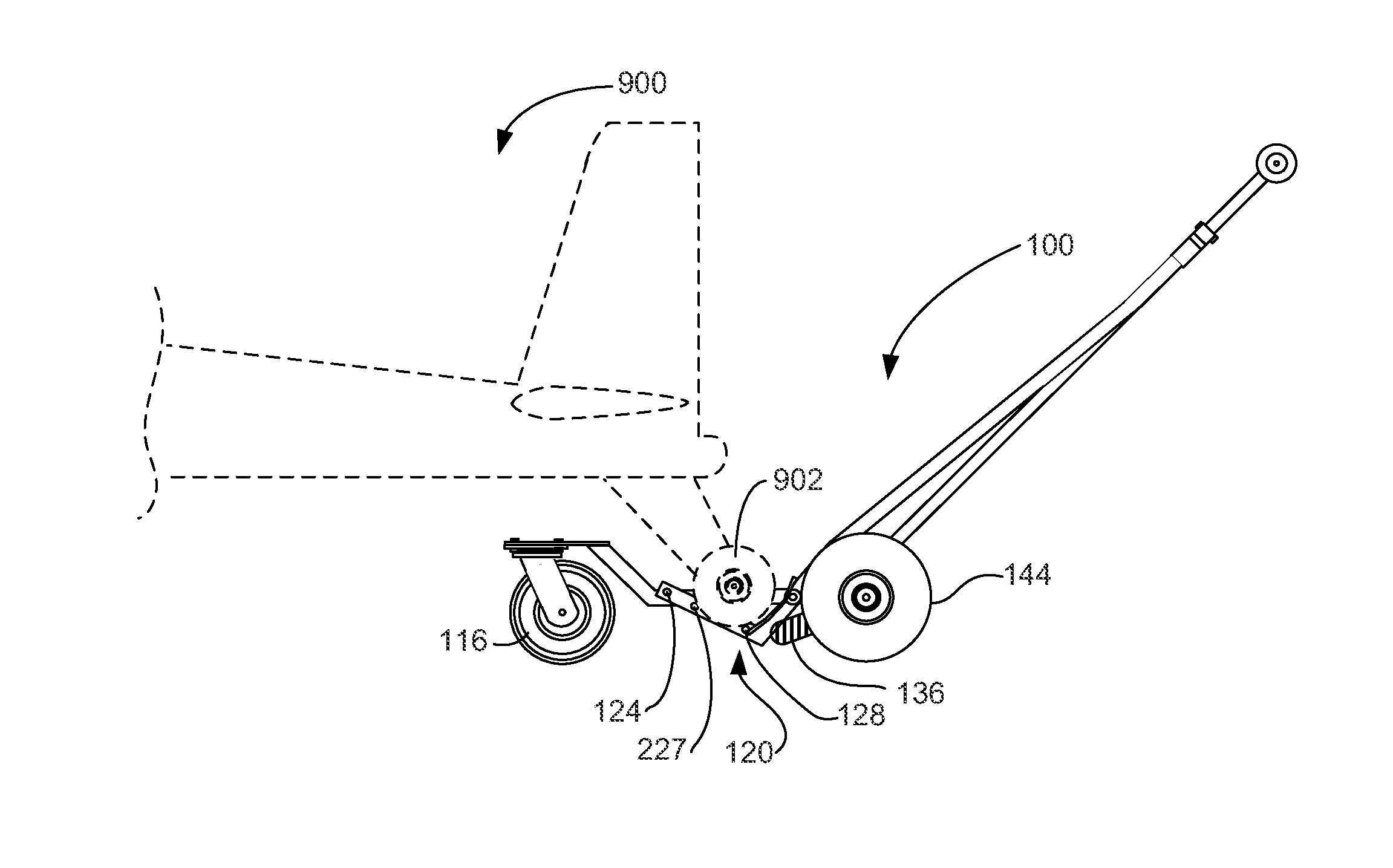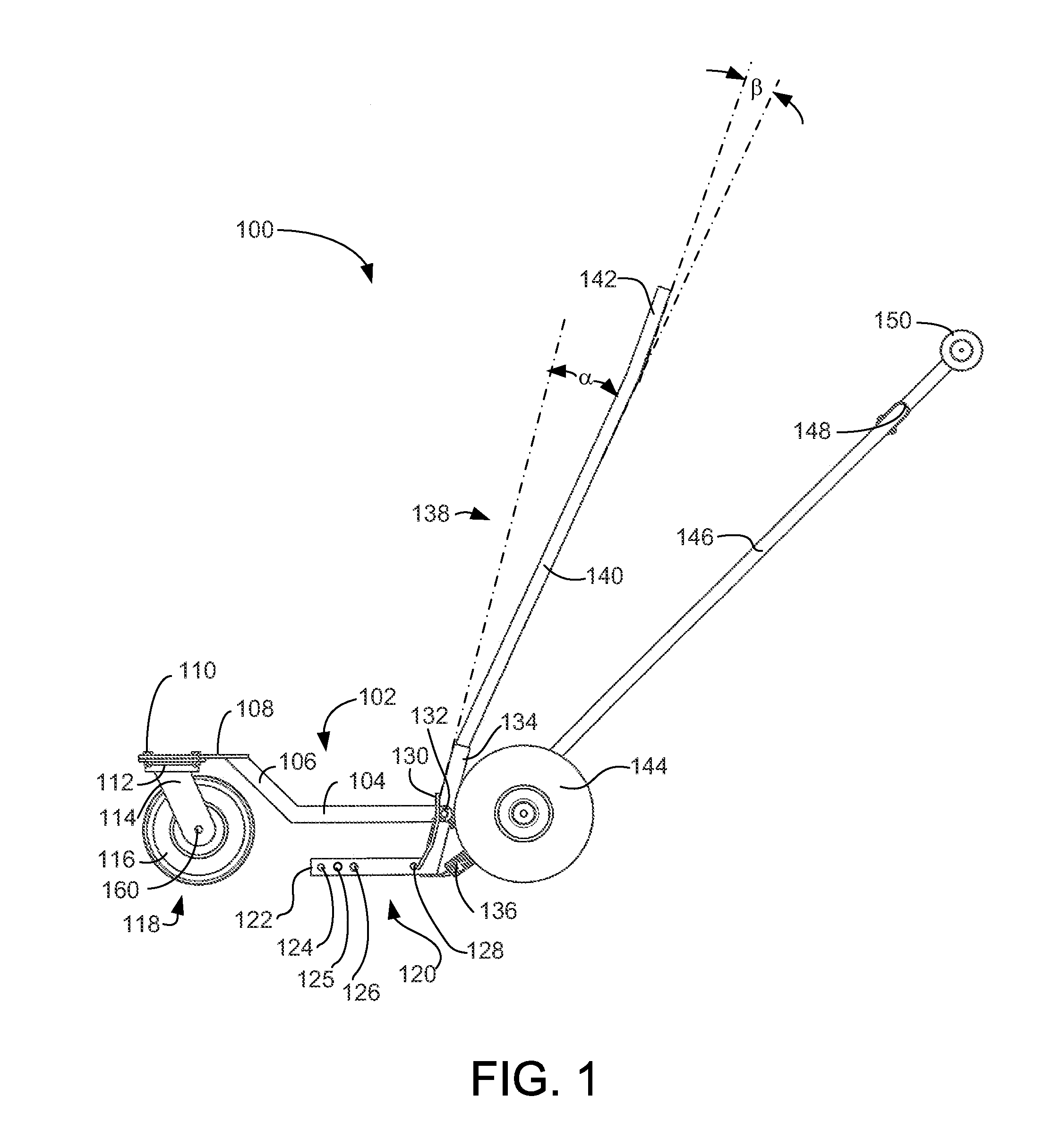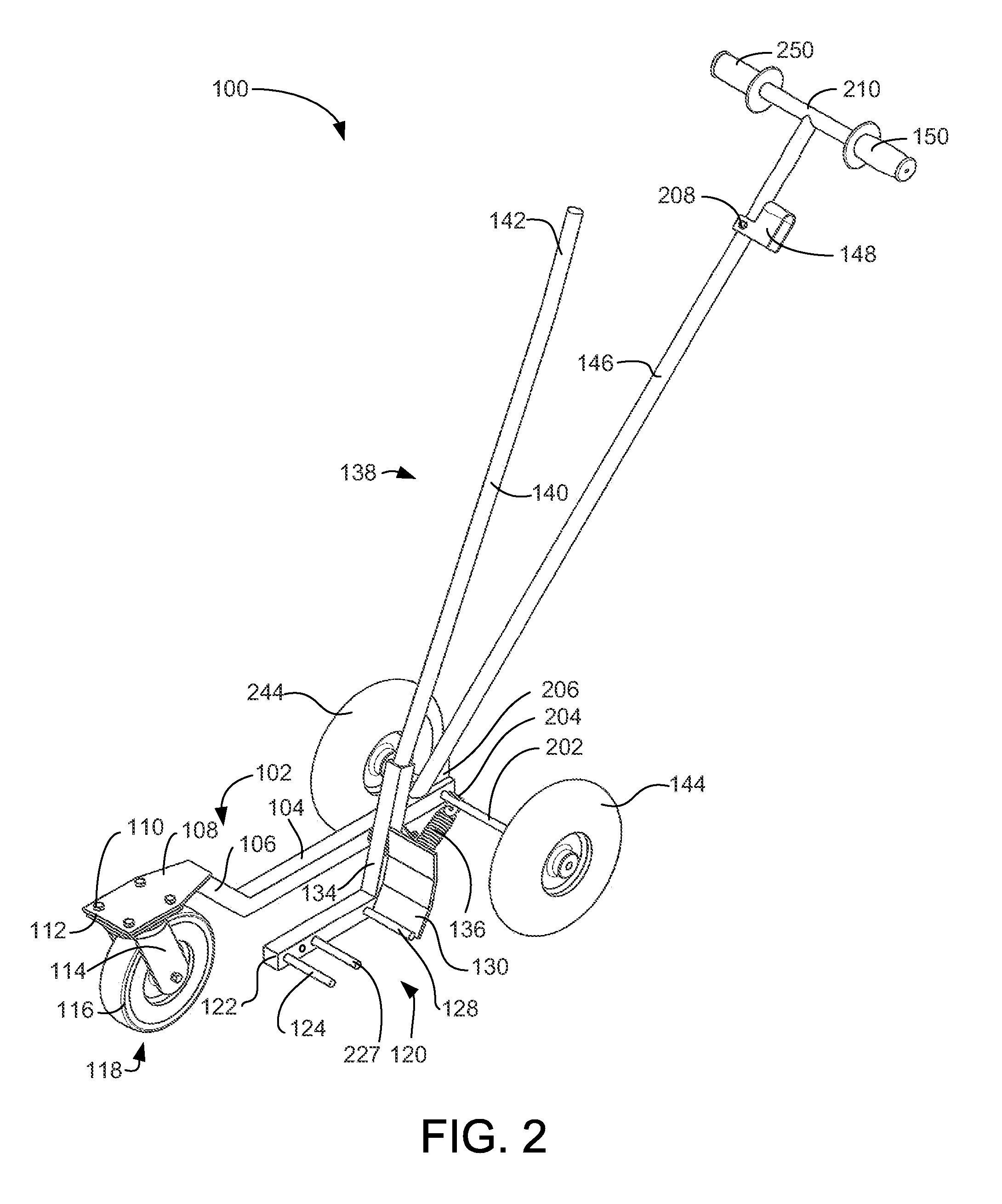Tail Wheel Transporter
a technology of transporter and tail wheel, which is applied in the direction of transportation items, vehicle maintenance, vehicle-manoeuvring devices, etc., can solve the problems of loss of control of the aircraft while in flight, high cost, and heavy invention of eckert, and achieves easy steering, constant manual force, and maintain the effect of li
- Summary
- Abstract
- Description
- Claims
- Application Information
AI Technical Summary
Benefits of technology
Problems solved by technology
Method used
Image
Examples
Embodiment Construction
[0032]FIG. 1 is a side elevation view illustrating an exemplary tail wheel transporter 100, according to a preferred embodiment of the present invention. Main frame 102 includes horizontal frame member 104 and angled frame extension 106. Horizontal frame member 104 supports elongated handle 146, axle 202 (see FIG. 2), and pivot 132. Angled frame extension 106 supports caster attachment plate 108. Main frame 102 is preferably made of substantially rigid material, such as steel or aluminum. In various embodiments, various other materials may be used. For example, in an embodiment where weight is at a premium, such as a tail wheel transporter 100 designed to be transported in an aircraft, Boron-epoxy composite may be used. Those of skill in the art, illuminated by the present disclosure, will be aware of materials that are appropriate for various unique applications.
[0033]Caster attachment plate 108 is preferably welded to angled extension 106. In an alternate embodiment, main frame 10...
PUM
 Login to View More
Login to View More Abstract
Description
Claims
Application Information
 Login to View More
Login to View More - R&D
- Intellectual Property
- Life Sciences
- Materials
- Tech Scout
- Unparalleled Data Quality
- Higher Quality Content
- 60% Fewer Hallucinations
Browse by: Latest US Patents, China's latest patents, Technical Efficacy Thesaurus, Application Domain, Technology Topic, Popular Technical Reports.
© 2025 PatSnap. All rights reserved.Legal|Privacy policy|Modern Slavery Act Transparency Statement|Sitemap|About US| Contact US: help@patsnap.com



